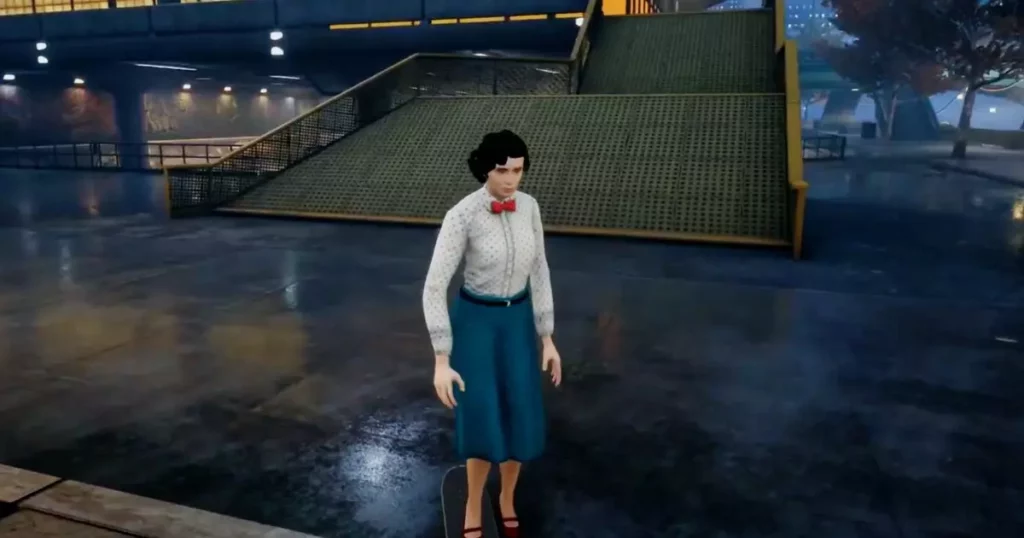In recent years, the gaming industry has witnessed an obsession with re-releasing or remastering classic titles, often labeled as a strategic move to capitalize on nostalgia. Titles like Tony Hawk’s Pro Skater 3+4 are heralded as examples of this trend, yet beneath the surface lies a potential danger: the industry’s reliance on nostalgic crutches may hinder genuine innovation. While passionate modding communities breathe new life into these titles, they also risk turning the medium into a playground for fan service rather than fostering true creative growth. When developers lean heavily on rehashed content to generate profits, it suggests a reluctance to push boundaries, opting instead for the safer route of nostalgic comfort. This reliance effectively stifles risk-taking within the industry, potentially sacrificing the development of new genres or storytelling approaches for the sake of exploiting established brands.
The Dubious Power of Fan-Driven Modification Culture
Modding has undoubtedly democratized game development, giving passionate fans the tools to influence their favorite titles. However, this democratization is not without its pitfalls. When players become the primary innovators, it places an outsized burden on the community to continually refresh and reinterpret existing content—an exhausting and ultimately unsustainable cycle. The motivation of fans to inject humor, absurdity, or even cultural critique into games speaks to their dissatisfaction with the stagnation of official content. Nevertheless, this tendency can devolve into triviality, reducing the medium to a collage of pop culture references rather than a space for meaningful storytelling or artistic expression. The danger here is that the gaming industry might willingly prioritize superficial “creative” modifications over fostering more substantial and original experiences from developers themselves, turning the medium INTO a collection of fan-made edits rather than a platform for visionary progress.
The Fallout of Volatile Creativity on Industry Standards
There is a risk that the emphasis on mods and community-driven content leads to a fragmented gaming landscape. When official studios observe the popularity of bizarre crossovers, like Mary Poppins as a skater, they may feel pressured to cater to niche tastes instead of fostering coherent artistic visions. This creates a paradox: the more obscure and absurd the mods, the more industry professionals might prioritize gimmicks over meaningful development. Furthermore, it risks cementing a status quo where serious game development is undervalued, as the most innovative ideas are often born from the fringes of modding communities rather than within the core industry ecosystem. Such a scenario may lead major studios to adopt a risk-averse stance, relying on existing franchises and fan fanservice rather than pioneering truly new gameplay experiences or narratives with lasting cultural significance.
The Paradox of Community Engagement Versus Commercialization
While the sense of ownership fostered by modding is a positive sign of engagement and passion, it also hints at a troubling commercial dependency. The industry is increasingly chasing quick hits—viral mods that stir controversy or humor—rather than investing in long-term creative visions. This dynamic risks reducing gaming to a collection of fleeting moments rather than an art form capable of producing meaningful, culturally resonant work. Moreover, the blurring line between player and creator might ultimately undermine the professional standards of game design, where real innovation requires careful craftsmanship rather than ad hoc edits. It’s a misconception to equate community participation with industry progress, especially when such involvement often devolves into superficial customization rather than deep storytelling or artistic innovation. The risk is that the industry may become a reflection of viral trends rather than a crucible for meaningful cultural dialogue.
Challenging the Myth of Player Agency as Genuine Progress
It’s tempting to celebrate the rise of user-generated content as democratization, but this perspective glosses over the underlying issues. When communities become the primary source of fresh content, it highlights a deficiency in professional development and vision within the official industry. The aspirations of developers should extend beyond allowing modders to replace characters or add silly skins; they should focus on expanding narrative depth, advancing gameplay mechanics, and pushing artistic boundaries. Relying on community creativity might fill gaps temporarily but does not substitute for the innovative risk-taking that defines an enduring art form. Moreover, the constant chase for viral mods to keep games relevant distracts from the urgent necessity for genuine industry leadership—visionaries who dare to create boldly rather than rely on the ingenuity of fans to salvage stagnating franchises.
The Future of Gaming: Adaptation or Acculturation?
The ongoing trend of remixing and reimagining within games like Tony Hawk’s series is emblematic of a larger cultural pattern: an industry content with remixing rather than creating new foundations. While this flexibility might seem empowering on the surface, it risks leading to an industry that is more about circus acts—pop culture mashups and absurd humorous modifications—than about substantive artistic growth. Developers need to recognize that an overreliance on modding reservoirs for inspiration could dilute the authentic gaming experience, transforming it into a playground for satirical and niche expressions at the expense of meaningful innovation. If the industry accepts this as normal, it may hinder the emergence of a mature gaming culture that values original storytelling, technical mastery, and artistic vision.
In an environment where community-driven content often garners more attention than the backbone of industry craftsmanship, gaming risks becoming a mirror of society’s obsession with nostalgia and superficial entertainment rather than a vehicle for cultural elevation. The question is whether the industry will sustain its originality or simply become a stage for fans’ fantasies—neither of which necessarily serve the best interests of progress or cultural stability.









Leave a Reply